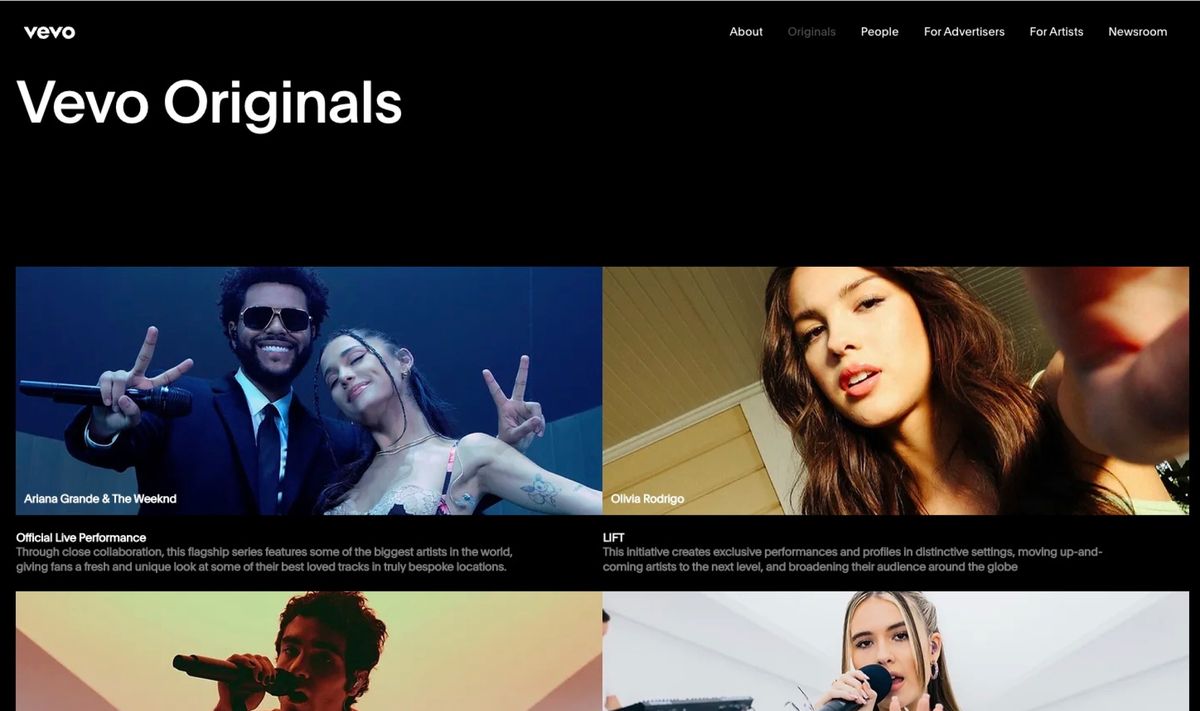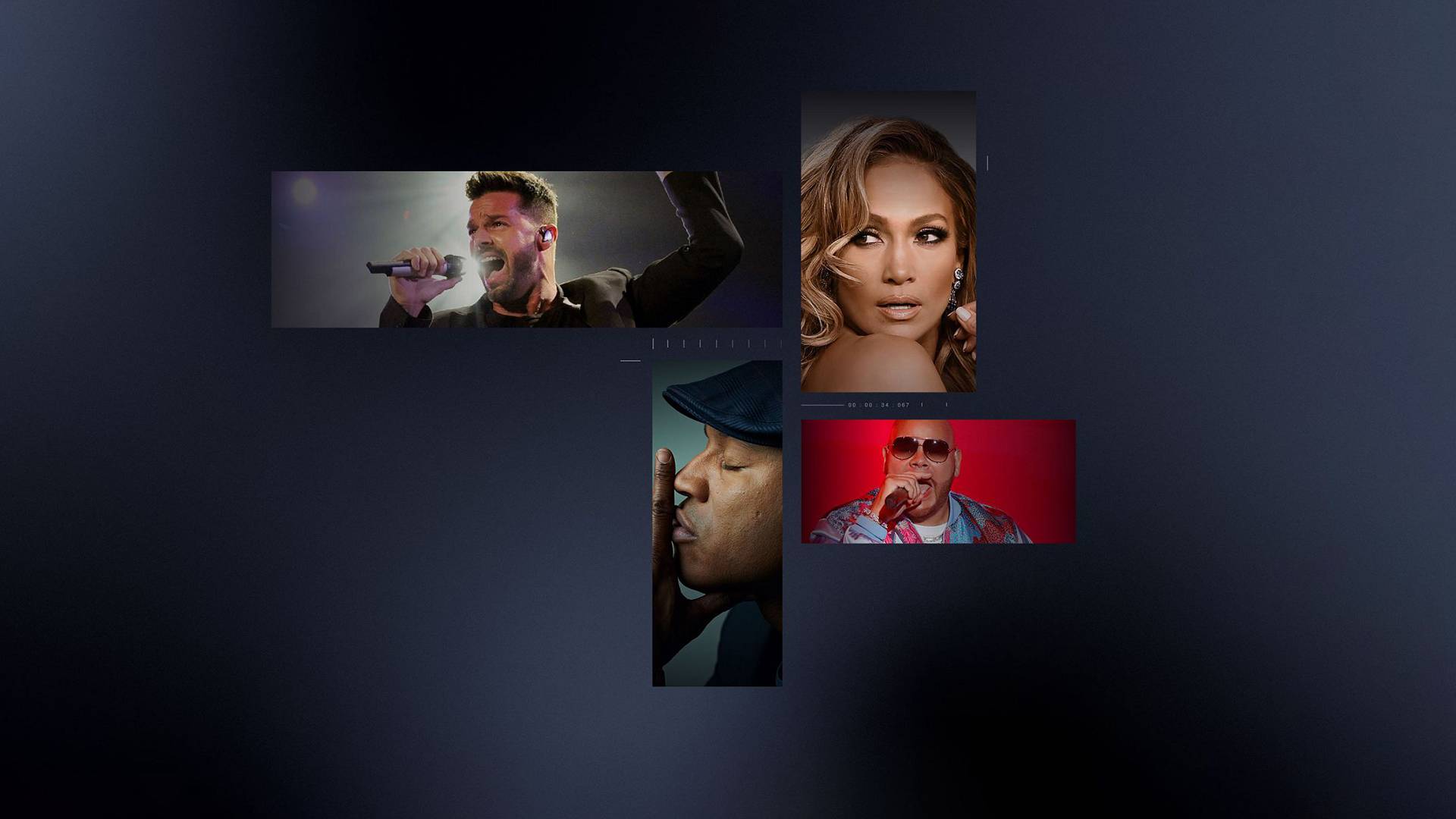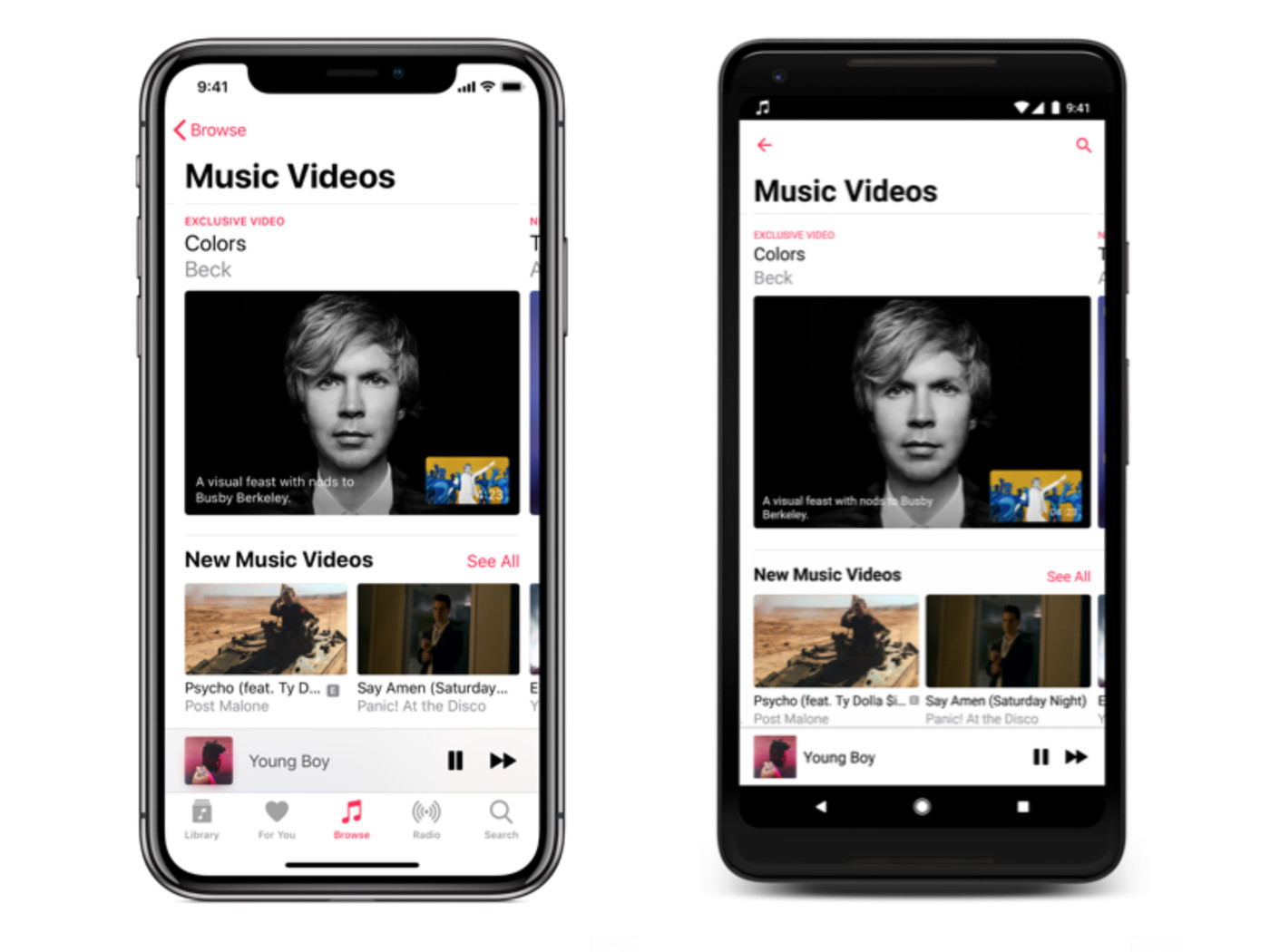Home>Production & Technology>Music Video>How Much Does A Music Video Director Get Paid


Music Video
How Much Does A Music Video Director Get Paid
Modified: January 22, 2024
Discover the average salary of a music video director and learn about the factors that influence their pay. Find out how much music video directors get paid and more.
(Many of the links in this article redirect to a specific reviewed product. Your purchase of these products through affiliate links helps to generate commission for AudioLover.com, at no extra cost. Learn more)
Table of Contents
- Introduction
- Factors Affecting Music Video Director Pay
- Average Salary Range for Music Video Directors
- Pay Scale Variations Based on Experience
- Additional Sources of Income for Music Video Directors
- Highest Paid Music Video Directors in the Industry
- Tips for Negotiating Pay as a Music Video Director
- Conclusion
Introduction
The music video industry has become a prominent and influential aspect of the modern music landscape. From Beyoncé’s captivating visual albums to Taylor Swift’s elaborate storylines, music videos are as much a part of the artist’s brand as their music itself. Behind the scenes of these spectacular productions are the talented individuals known as music video directors.
Music video directors play a crucial role in bringing an artist’s vision to life. They are responsible for conceptualizing and overseeing the creative and technical aspects of a music video, including the storyline, cinematography, editing, and overall visual aesthetic. These directors are skilled storytellers who have a deep understanding of music, visuals, and the emotional impact that a well-crafted video can have on an audience.
However, the question arises: how much do music video directors get paid for their work? The answer to that question is influenced by various factors, such as the director’s experience, the budget of the project, the artist’s popularity, and the production company involved. In this article, we will explore the average salary range for music video directors, the factors that affect their pay, and some tips for negotiating a fair compensation.
Factors Affecting Music Video Director Pay
Several factors influence the pay scale of music video directors. Understanding these factors can help directors negotiate fair compensation for their work:
- Experience: Like any profession, the level of experience plays a significant role in determining a music video director’s pay. Directors with a proven track record of successful videos and extensive industry experience are likely to command higher salaries.
- Artists’ Popularity: The popularity and reputation of the artist involved in the music video also affect the director’s pay. A director working with a mainstream artist or a well-established band may receive higher compensation due to the exposure and recognition associated with such projects.
- Budget: The budget allocated to a music video production can have a direct impact on the director’s pay. Music videos with larger budgets often allow for greater creative freedom, higher production values, and more elaborate concepts, which may warrant higher compensation.
- Production Company: The production company or record label backing the video can also influence the director’s pay. Established production companies or labels with bigger budgets may offer higher salaries to attract top-tier directors.
- Complexity of the Project: The complexity of a music video can also affect the director’s pay. Videos with intricate storylines, extensive visual effects, or demanding production requirements may require more time and effort from the director, warranting higher compensation.
It’s important for directors to consider these factors when negotiating their pay. A combination of experience, artistic merit, and the overall scope of the project should all be taken into account when determining fair compensation for music video directors.
Average Salary Range for Music Video Directors
The salary range for music video directors can vary greatly depending on several factors, including experience, the artist’s popularity, and the budget of the project. On average, music video directors can expect to earn between $500 and $5,000 per day or between $10,000 and $100,000 per project. However, it’s important to note that these figures are just estimates and can be significantly higher or lower depending on the circumstances.
Directors starting out in the industry or working with lesser-known artists may earn on the lower end of the salary spectrum. As they gain more experience, build a portfolio, and establish a reputation, their earning potential increases. Established directors who have worked with top-tier artists and have a proven track record of successful music videos can command higher salaries.
Additionally, the budget of the music video production has a significant impact on the director’s pay. Music videos with higher budgets allow for more creative freedom, better production values, and a larger team, which can translate to higher compensation for the director.
It’s worth mentioning that the salary range mentioned above may not always include other expenses associated with the production, such as travel and accommodation costs, equipment rentals, and post-production expenses. These additional costs are typically factored into the total budget of the music video and can vary widely depending on the scale and requirements of the project.
It’s important for music video directors to research industry standards, consider their level of experience, and negotiate fair compensation based on the specific circumstances of each project. Building strong relationships with artists, production companies, and industry professionals can also open doors to higher-paying opportunities in the music video industry.
Pay Scale Variations Based on Experience
Experience is a key factor that significantly impacts a music video director’s pay. As directors gain more experience and develop their skills, their earning potential increases. Here are some pay scale variations based on experience:
- Entry-Level Directors: Directors who are just starting out in the industry or have limited experience may earn on the lower end of the pay scale. They might take on smaller projects or work with emerging artists to build their portfolio and gain recognition. The pay for entry-level directors can range from $500 to $2,500 per day or $5,000 to $25,000 per project.
- Mid-Level Directors: As directors gain more experience and successfully complete a significant number of projects, their earning potential grows. Mid-level directors with a solid track record and a few notable works to their name can expect to earn between $2,500 and $5,000 per day or $25,000 to $50,000 per project.
- Established Directors: Directors who have established themselves in the industry, have an impressive portfolio, and a reputation for delivering high-quality music videos can command higher salaries. These directors often work with mainstream artists or well-known bands and can earn between $5,000 and $10,000 per day or $50,000 to $100,000 per project.
- Top-Tier Directors: A select few music video directors, who have reached the pinnacle of success in their careers and have worked with industry giants, may earn even higher salaries. These top-tier directors are in high demand and can negotiate deals that earn them upwards of $10,000 per day or $100,000 per project.
It’s important to note that these pay scale variations are subjective and can vary depending on factors such as the artist’s popularity, the budget of the project, and the production company involved. Additionally, it’s not uncommon for directors to negotiate a flat fee for the entire project rather than a daily rate.
Directors looking to increase their earning potential should focus on building a strong portfolio, establishing industry connections, and continuously expanding their skills and knowledge. Networking, attending industry events, and staying up to date on current trends can also provide opportunities for directors to advance their careers and command higher pay.
Additional Sources of Income for Music Video Directors
While the primary source of income for music video directors is their fee for directing a specific project, there are additional avenues through which directors can earn income. These additional sources of income can supplement their earnings and provide a more stable financial foundation. Here are some common additional sources of income for music video directors:
- Producer Credits: In many music videos, the director also takes on the role of a producer. This means they are involved in the pre-production and production process, including securing funding, coordinating the logistics, and managing the creative aspects of the video. By taking on the producer role, the director can earn additional income through producer credits and royalties.
- Editing and Post-Production: Directors with expertise in video editing and post-production can offer their services to other artists or production companies. They can take on video editing projects, color grading, visual effects, and audio mixing, which can provide a steady stream of income in between directing gigs.
- Commercial and Advertising Work: Many music video directors also venture into the world of commercial and advertising work. They can apply their creative skills to create compelling visuals for commercials, brand campaigns, and promotional videos. This diversification allows directors to tap into a different market and generate additional income.
- Consulting and Creative Direction: Experienced music video directors often have a wealth of knowledge and insights into the industry. They can offer their expertise as consultants or creative directors, providing guidance to aspiring directors, artists, or production companies. This consultancy work can be done on a project basis or through ongoing partnerships.
- Brand Collaborations and Sponsorships: Established directors can collaborate with brands or secure sponsorships for their music videos. By incorporating product placements or partnering with brands, directors can generate additional income and fund their projects.
- Teaching and Workshops: Experienced directors can share their knowledge and skills by offering workshops, masterclasses, or teaching at film schools or creative institutions. This not only provides an additional income stream but also allows directors to give back to the industry and nurture the next generation of talent.
It’s important for music video directors to explore these additional sources of income to create a more sustainable and diverse career. By leveraging their expertise, creativity, and industry connections, directors can maximize their earning potential and establish a solid foundation in the music video industry.
Highest Paid Music Video Directors in the Industry
The world of music video directing has seen some exceptionally talented individuals who have not only made a significant impact on the industry but also commanded impressive salaries for their work. Here are some of the highest paid music video directors in the industry:
- Hype Williams: Known for his visually stunning and innovative music videos, Hype Williams is considered one of the highest paid music video directors. With a career spanning several decades, his work with artists like Beyoncé, Kanye West, and Jay-Z has garnered critical acclaim and commercial success.
- Joseph Kahn: Known for his visually striking and highly intricate music videos, Joseph Kahn has worked with some of the biggest names in the industry, including Taylor Swift, Eminem, and Lady Gaga. His creativity and attention to detail have made him one of the highest paid music video directors today.
- Spike Jonze: Spike Jonze has crafted unique and memorable music videos for artists like Beastie Boys, Björk, and Fatboy Slim. His distinctive style and ability to push creative boundaries have made him highly sought after and well compensated for his work.
- Paul Thomas Anderson: Renowned for his feature films, such as “There Will Be Blood” and “Boogie Nights,” Paul Thomas Anderson has also directed music videos for artists like Fiona Apple and Radiohead. His directorial prowess and artistic vision have contributed to his status as one of the highest paid music video directors in the industry.
These directors have not only made a significant impact on the music video landscape but have also been able to command substantial salaries due to their exceptional talent, experience, and reputation within the industry. While these directors are at the top of the pay scale, it’s important to recognize that there are many other talented directors in the industry who may not command the same level of compensation but still contribute to the artistry and creativity of music videos.
Tips for Negotiating Pay as a Music Video Director
Negotiating fair pay as a music video director is crucial to ensure that your talent and expertise are appropriately compensated. Here are some tips to help you navigate the negotiation process:
- Do Your Research: Before entering into negotiations, research industry standards and familiarize yourself with the average rates for directors with similar experience and credentials. This will provide you with a benchmark to negotiate from and ensure that you are asking for a fair fee.
- Highlight Your Experience and Portfolio: Emphasize your past projects, successes, and the unique perspective and creativity you bring to the table. Presenting a strong portfolio and showcasing your expertise can strengthen your position during negotiations.
- Determine Your Value: Consider the scope and complexity of the project, the artist’s popularity, and the potential exposure and recognition it may bring. All of these factors contribute to your value as a director and can be used to negotiate a higher fee.
- Be Flexible and Open to Negotiation: While it’s essential to have a clear idea of what you believe you are worth, be open to negotiation. Understand that budgets can vary, and there may be limitations. Consider other aspects of the deal, such as creative freedom or future collaborations, that can add value beyond monetary compensation.
- Consider Project Expenses: Take into account any additional expenses you may incur during the production, such as equipment rental, travel, or post-production costs. Factor these expenses into your fee and ensure that your overall compensation covers them.
- Build Relationships: Cultivate strong relationships with artists, production companies, and industry professionals. Networking and establishing trust can lead to higher-paying opportunities and long-term collaborations.
- Consult with Agents or Lawyers: If negotiating pay feels overwhelming or you are unsure about the terms and conditions, consider seeking guidance from agents or entertainment lawyers who specialize in the music industry. They can provide valuable insights and assist you in securing a fair deal.
- Have a Written Contract: Once you have reached an agreement, ensure that all details regarding payment, deliverables, and timelines are documented in a written contract. This protects both parties and provides clarity on the agreed-upon terms.
Remember, negotiating pay is a normal part of the industry, and it’s essential to advocate for yourself and your talent. By being well-prepared, confident, and receptive to negotiation, you can secure fair compensation for your work as a music video director.
Conclusion
Being a music video director is a rewarding and creatively fulfilling career, but understanding the factors that influence pay and knowing how to navigate negotiations is important for achieving fair compensation. Factors such as experience, artists’ popularity, project budgets, and the production company involved all play a significant role in determining a director’s pay scale.
While the average salary range for music video directors can vary widely, depending on these factors, directors can earn anywhere from $500 to $10,000 per day or $10,000 to $100,000 per project. Additional sources of income, such as producer credits, editing services, commercial work, and brand collaborations, contribute to a more stable financial foundation.
Some of the highest paid music video directors in the industry, such as Hype Williams, David Fincher, Joseph Kahn, Spike Jonze, and Paul Thomas Anderson, have not only made significant contributions to the art form but have also commanded impressive fees for their work.
When negotiating pay as a music video director, it is crucial to do thorough research, highlight your experience and portfolio, and consider the project’s scope and industry standards. Being flexible, open to negotiation, and building strong relationships within the industry can also lead to better opportunities and higher compensation.
In conclusion, the world of music video directing offers immense creative possibilities, and by understanding the factors that determine pay and employing effective negotiation strategies, directors can ensure fair compensation for their talent and expertise. With perseverance, skill, and a keen understanding of the industry, music video directors can thrive both creatively and financially in this dynamic field.











